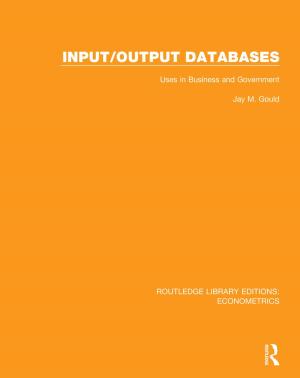Peacekeeping Intelligence
New Players, Extended Boundaries
Nonfiction, Social & Cultural Studies, Political Science, International, International Security, International Relations, History, Military| Author: | ISBN: | 9781134188406 | |
| Publisher: | Taylor and Francis | Publication: | January 24, 2007 |
| Imprint: | Routledge | Language: | English |
| Author: | |
| ISBN: | 9781134188406 |
| Publisher: | Taylor and Francis |
| Publication: | January 24, 2007 |
| Imprint: | Routledge |
| Language: | English |
This is a new evaluation of the role, dynamics and challenges of intelligence in peacekeeping activities and its place in a much wider social, economic and political context.
It assesses the role of coalition forces, law enforcement agencies, development institutions, and non-governmental organisations who have become partners in peace support activities.
Peacekeeping Intelligence (PKI) is a new form of intelligence stressing predominantly open sources of information used to create Open Source Intelligence (OSINT), and that demands multi-lateral sharing of intelligence at all levels. Unlike national intelligence, which emphasizes spies, satellites, and secrecy, PKI brings together many aspects of intelligence gathering including the media and NGOs. It seeks to establish standards in open source collection, analysis, security, counterintelligence and training and produces unclassified intelligence useful to the public. The challenges facing peacekeeping intelligence are increasingly entwined with questions of arms control, commercial interests, international crime, and ethnic conflict.
This book will be of great interest to all students and scholars of military and security studies, intelligence and peacekeeping.
This is a new evaluation of the role, dynamics and challenges of intelligence in peacekeeping activities and its place in a much wider social, economic and political context.
It assesses the role of coalition forces, law enforcement agencies, development institutions, and non-governmental organisations who have become partners in peace support activities.
Peacekeeping Intelligence (PKI) is a new form of intelligence stressing predominantly open sources of information used to create Open Source Intelligence (OSINT), and that demands multi-lateral sharing of intelligence at all levels. Unlike national intelligence, which emphasizes spies, satellites, and secrecy, PKI brings together many aspects of intelligence gathering including the media and NGOs. It seeks to establish standards in open source collection, analysis, security, counterintelligence and training and produces unclassified intelligence useful to the public. The challenges facing peacekeeping intelligence are increasingly entwined with questions of arms control, commercial interests, international crime, and ethnic conflict.
This book will be of great interest to all students and scholars of military and security studies, intelligence and peacekeeping.















